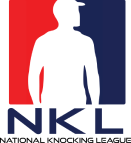Ad 00:06
prompt is more than a messaging app. Today’s door to door organizations and sales teams demand better than what free messaging apps can offer. enters bronto. A single communication hub for your entire organization with a clean design that elevates your brand and doesn’t require any training with real time direct and group messaging, video conferencing announcements, unlimited file sharing and storage, administrative capabilities and more, pronto will help your organization communicate, collaborate, recruit, train, retain, and be more successful. So swipe up, try for free when more.
Sam Taggart 00:45
All right everybody this is Sam Taggart with the D2D podcast and I’m here with Judd Stanger and Brian Schonbeck, and these guys are the founders and owners of Atlanta key energy, which is a solar company. We’re out here in Florida. What are we doing in Florida? Why Why were we a freaking in Florida? You guys are from Utah boys, aren’t you like Layton? Where are you from? Pleasant Grove, Pleasant Grove. So we got these Utah boys to say, Hey, we sell door to door remember, I’m trying to recruit Jed back in the back in the weaver state days, I meant this job where they had just literally is like, they’re gonna do alarms and my buddy, James Adams is like, screw this Sam. He’s my friend. And I’m like, screw you. And then we fought over him as a recruit. James, Adam gets him goes and sells alarms for a little while. How many? How many usually do alarms? We did I did six years, six years and alarms on the new arms to six or six years.
01:34
Were you guys on the same team? No, we just knew each other from being in the same region, same region. Yeah, they’re all in our region or division. So
Sam Taggart 01:41
we go way back like this is yours. What year was that was your first year? That’s like 2012 2013, I think, right? Yeah, I think 2012 was my first. So that was my first year going over to Bennett, which is kind of crazy. So like, yeah, literally, both had our first years of living together. And this part is really interesting. Why? Because they were you know, did that for six years. And then two years ago, they said, we’re gonna take the polar plunge into the solar world, right? Like, you’re just like, hey, let’s see if this has got some legs and started a company. Did you work for a different solar company before this? Or did you guys just go straight ownership? No, I
02:21
worked for a company out of Utah for about a year before starting Atlantic energy. So I made the switch about three years ago, three years of solar. Yeah, that’s crazy. New,
02:33
I just did a couple blitzes. And we went and we went and worked with alter Ray for a week. And I was like, let’s do like slapping glass,
Sam Taggart 02:41
slap that glass. So this, they come out of Florida. And guys, now they’re doing 500 a month. To put things in perspective, your average solar systems, what 40 Grand 40 grand, just 500 What is it not really a math 220 million a month. So if you’re listening to this, I think that’s pretty impressive for their second year in business, and I’m sure there’s something we’re gonna learn for this. And I’m super impressed. Because I’m like, Damn, like, you know, when, when you make that much in revenue, you probably make them a little bit of money. But I will brag about these guys. I’m like, why don’t I just work? We just got done training all your leaders, you know, obviously, to do 500 a month, you’ve got a big army of people. And to have all your managers there. And from all over the country, you have multiple states and markets now. I guess kind of what were some of the big leadership aha moments you’ve had as you’ve moved into from rep manager. Now you guys are owners? Like what were some of the big aha moments you’ve had over the last couple years trying to like build this thing? Brian, what do you think?
03:50
I think just taking on like a full enterprise. Like you don’t understand really what goes into it until you’re in it. And by the time you’re in it, it’s too late. No, I
Sam Taggart 04:00
don’t want to have to pay attorneys.
04:03
Do what you would have to do start in the journey, you probably won’t start. So because it’s almost better to go and go and blind.
Sam Taggart 04:09
It sounds like pregnancy. You know? If I knew that, I had to push this thing out of me all the things. Right. That’s why I’m like, I’m so grateful to be a dude. Yeah, he knew he you were getting into the heart. Yeah, yeah. So what have been the biggest like eye opener things running into the entrepreneurial world that you’re like a red flag guys, just so you know, heads up?
04:33
I think there’s I think having grit was definitely one of the things that you had to learn starting a business is because, you know, I think a lot of us think that, you know, we’re running a team for a big company, and we don’t realize like all the systems and everything that that company offers. And then when you go do it on your own, it’s a completely different environment when you have like no tools or resources
Sam Taggart 04:56
whatsoever makes you appreciate all the like small minor Little back end process. Yeah, exactly. put together the big dogs. Exactly. You’re just like, Oh, I didn’t have to think about video editing and training platforms and payroll, payroll, accounting and exam budgets and, you know, starts to add up. And every time you think about those things, you either get to do it or have to pay somebody do it and then paying somebody to do it cost money, and then they have babysit and train them how to do it, because then they’re gonna do I want to do it, nor do I even know how I want them to do it. Exactly. Yeah. What else?
05:28
I think a lot of people just think like entrepreneur, you dive in, and you’re like, Oh, I’m going to be running a sales team. Or you’re not like, you’re a sales manager, a payroll accountant. You’re in insurance, you’re in fleet management, you’re in all these different things that you just don’t think about. And so kind of, like you said, it’s like, at a, at a certain scale. It just doesn’t make sense. To put in time, energy and effort without like, trying to go big. Yes, I was saying it’s like, when you get into it, you’re already like knee deep before you realize what you’re into. And then it’s like, you’re either all in or you’re all out. Yeah, there’s
Sam Taggart 06:05
like, there’s probably a point I think I’ve seen most business owners get to the point where they’re like, hey, they’re just go back to being like, small and just wrap and just keep it super lean and simple. We just run out of our house make it happen. Or we have to go much bigger for us to actually make money and do this, right?
06:24
You always have that thought that you’re like, I could just go knock some doors right now. And that would be such a sweet relief. Yeah, compared to like, some of the stresses that come with running
06:34
a big company. It’s like, you don’t know what you have until you have it. Like when you’re at, you’re like, oh, man, I wish I could be in ownership. But then when you’re in ownership, you’re like, oh, man, it would just be so nice to go knock a door. Like life so simple at that level, versus where you are in ownership. But that’s like being an entrepreneur, like you’re either all in or you’re all out. Like you can’t, half ass being an entrepreneur.
Sam Taggart 06:56
Yeah. And I’ve actually, I’ve actually had my fair kick to the nuts over the last few, probably six, eight months, because I’ve realized that I’ve been like side hustle businesses that are kind of my auxilary fun things, right? But I’m not all in. I’m like, if I was all in on those, they would be great because I can lead the charge. I’m running it. But I remember my uncle, he runs these car washes. And he’s just like, dude, like, I already knew you were gonna suck at this. He looks to me like when I started in the carwash business, like, I gotta make this work. And I gotta be refocused. Because, like, my first two car washes fail, because I wasn’t there. I just thought, Oh, yeah, they’ll just run themselves. And he’s like, I had to get dirty. I had to like, do it. Right. Yeah. So I feel you on that. So what what, um, what do you find that’s working for you? Like, what do you what do you found? You’re like, Man, this has been a big success for us. So like, you know, once we figured this out, life was much easier for us. Are we not there yet? I don’t know. I don’t think we’re anywhere yet. 500 a month, we’re like, we’re just
08:00
getting started. But like, that’s the thing, right? Like, you come from a different culture, you come from the best company that sells door to door in the world, in my opinion, which has been, nothing’s ever been as successful or as great or the answer and like the buy in, and everything that you saw. And then when you go to create your own, it’s yours and you love it. But you always see how it can be better. Like you’re never done, like perfecting your craft. And so I think with this more than anything, what we found to be successful, it’s like, if you want to be an entrepreneur, and you want to start a company, like don’t start it alone. Like one of the biggest successful things that I found is like, john and i, like finding someone you trust, and who is your equal and starting a business with them?
Sam Taggart 08:43
Yeah, so one runs, you run more of the operations side, you run much more of the sales side, where you always an operations kind of person, or you’re like, I guess this is the route I’m taking you take sales or charge this together. Like, you know, is that like, a weird because because this is where I you know, I think everybody gets nervous creating partnerships, right? Everybody’s always like, well, what if the partnership goes bad? What if like, I don’t like the guy, what if he doesn’t pull his weight? Like you said, equal? How do we measure equal and I always think I’m the best you know what I mean? Like, right, that’s always this was the problem
09:14
of partnerships is like, you have to be humble enough to understand that you’re not the best, but then also have a big enough ego to understand how good you are and find that counterpart. Hmm. And like, that’s super rare, but we’ve been to a lot of business conferences, and we’ve been around a lot of successful people. And it’s weird, they’re like penguins. Like they always have their equal with them. They always bring a second guy with them. And like being around like the trailer parks with Casey ball like your main comment yours like all these 100 millionaires have like a second, you know, didn’t come along. They’ll have their like, there’s no other guy there group. None. It’s like they always had like their equal, equal and opposite. And so like to answer your question, like I wasn’t always an Ops, but like, I am more of like a process based person. Which just naturally lends itself to ops. Yeah. But I think like going into ops is always going to be unsuccessful unless you have a sales background. So like like that, when you get into construction, like, you’ll just find there’s two separate kinds of people. There’s like people who are construction people, and then people who are construction people with a sales background. Hmm. And like you’re a sales company, no matter what overall, like whether you think you’re a roofing company, a solar company, or whatever, you’re a sales company. And so you always have to have that background and that grounding, in order to grow an operations arm that can keep up with 500 sales a month. Yeah. Because if you were to think of just the operational side, she would be completely overwhelming like a giant tidal wave. But if you can, like work backwards from like, how a sale works, to how it gets installed, that I think is really where you can start to define and create processes that are that are better than what’s come before and that are different, that can make you unique and growing organization. It’s like why work somewhere over somewhere else? It’s like systems process and implementation. Yeah. And the only competitive advantage you have is speed.
Sam Taggart 11:04
Love the suite jammed on this today. So literally, we trained from nine to 5pm on systems. Right, right. So Jeff, what were some of the takeaways from today that you were like, because you’re on the sell side? And right, what I trade is the sales systems, you obviously have, like fleet management system, and inventory and collection systems and, you know, payroll systems, but we jammed on sale side. But yeah, like, what were some of the big takeaways,
11:27
I think some of the big takeaways for me were, you know, when you’re trying to scale an operation, I think a lot of times, you’re growing so quickly that you forget to do the small little detailed things, but that that’s what keeps the growth going. And that’s what like helps you get to that next level. And so I think one of the biggest takeaways that I had from today was, you know, sometimes it takes one step back to take two steps forward. Yeah, we talked about like the little cocoon, and the butterfly analogy. And sometimes you see reps that they really want to get to that management level, and they, they want to help grow the company, but they’re not willing to take the step back and potentially lose some income in order to help other people gain that income. to then get to that next level,
Sam Taggart 12:10
the most common thing we see and listen up, if you’re a sales rep, trying to become a manager, you’re a manager that’s in this, we call it the tunnel, where you’re like, man, I just didn’t babysitting. And we’re right before the summer where a lot of people are going to go through this dip. You know what I mean? Last year, there were the top rep now they got 20. Guys, and then there’s you sit there and babysit their production Dibs. They’re like crap, I’m not selling, I spent all my time doing this, for how much like 10, extra $1,000 on an override, like or whatever for the summer, like, you know, or whatever that looks like for them. And they can’t have the foresight to see them flying as butterfly. So they’re not willing to go into the dark cocoon. And really kind of take that step back from a from a, from a, I don’t know, almost influence, like you’re seen as the top sales rep, and they’ll send your numbers dip, because you’re spending your time on other things to grow something long term. And then they’re like, Well, no, but but I was a tough guy. Like, I just know, I don’t have like, bah, like, I’m still cool. You know what I mean? Yeah. And then they fall back, or they can withstand the cocoon, and then they break out eventually become a butterfly. And now they’re managing a good organization or team below them.
13:13
Exactly. And it’s like having that vision that forethought of being able to like see the potential opportunity in it. Because I think everybody in the industry wants to get to that point. Yeah. But it’s it’s being willing to and having it’s being willing to and then having the grit necessary to like push through that that tunnel, like you talked about
Sam Taggart 13:32
the reasons other than that?
13:34
No, I think it’s totally right. Cool. And like, there’s going to be pushback. Yeah, like, there’s two sides to every story. So as you’re growing organization, like you’re going to have attrition. And attrition will have their side of story, and you’ll have your side of the story. But like being resilient enough to stick to who you are and your core principles to grow an organization is like so important. Or it’s like if you take a step back, or you make a change in, like the operational integrity, or the sales flow, or the commission structure, like you can’t be afraid and let reps hold a gun to your head and control the entire industry. what’s valuable is what you’re putting in place the system, the process, the vehicle for which they’re gonna make money, like your sales organization, or your install arm is just a vehicle for someone else to create capital. And so you have to look at yourself as a product. And what makes sense to somebody who may have started it with you may not make sense to somebody who’s coming in as a new Rep. And the opportunity always has to keep getting greater and greater and greater. If you’ve reduced the opportunity moving forward. You’re no longer a good product. Hmm. And so viewing your business as a product for sales reps is like a key fit to culture where it’s like they can come in and implement themselves into your systems.
Sam Taggart 14:46
Have you seen like, obviously, you can’t be that perfect, well oiled, and obviously you’d have me out here to come to help with that. And then that’s a continued journey. Like you’re like not satisfied with where you’re at because he wouldn’t be in this meeting, but like, have you seen With time, you’re almost like, darn it, if that one rep would have come now, where we’re at today, he would have been awesome. But he came like, a year ago, and we weren’t so cool. You know what I mean? Like, darn it, unfortunately, we couldn’t supply that product or that environment that he needed to perform here. And as you get better, if you noticed, it’s easier to retain those guys, or it’s easier to attract, those guys are
15:24
100%. Like, momentum is a core cruel mistress, right. So it’s really hard to you know, push that snowball up the hill. But then once you get to the top of that hill, and it starts rolling down, it’s like, you’ve got those systems in place, you’ve got the people in place, and you’ve got the network where, you know, success breeds success. Other people come into the organization, and they see all the success your current guys are having, they’re able to just join in on that momentum has like immediate success, and it kind of helps you scale even quicker, because they step right into something that’s like, working. Awesome. Also, it’s
16:00
like the proof of concept, right? When you start endeavor is just an idea. When you prove the concept, and you have tangible, you know what I mean growth, and people can see how much someone has in their bank account not versus what they were promised. Like, that’s a powerful motivator. And recruiting tool for reps is like, proof. Right? Yeah. concept. Proof of shame is 1099.
Sam Taggart 16:25
Yeah, nobody. It’s so funny. Because it’s such like a classic way of recruiting. It’s like, honestly, my back end, you want to look at my 1099. It’s kind of like, it’s like, yeah, it what I was saying is that there’s a reason why that works. It’s kind of like, I mean, I could fake to you what the government owes and tax it, you know, in like, like, this is the real document. And what’s interesting is I consult a lot of businesses where they use other industry proof, where it’s like, but our top rep is making 60 grand here. But in theory, working in solar roofing past, whatever it is, you can make 300 grand or 500, grand or whatever. But you recruit off of this. Well, there are people in the industry making 700 grand, but it’s but here are the top guys making 60. So I have co workers or people that have been in the industry that go to a company and though Yeah, I was the top Rep. It’s like, but I still wasn’t making money. If I wasn’t making money as a top rep, then these guys really weren’t making money. And it was almost depressing, right? Yeah. Right. It’s like, what do you say is proof? It’s kind of like, well, I don’t know, like, it’s undeniable. Here’s the facts, like be part of that, you know, well,
17:31
it’s the law of the lid, right? It’s like, you’re never gonna make more than the person above you. So surrounding yourself around the right kind of people, right, your network is your net worth. So I think, talking about momentum, and being able to recruit guys easier and stuff like that, I think it helps when you’ve got a lot of people that are having success, that it’s like, all I have to do is just copy what this guy’s already been doing. Like, I can do exactly what he did.
17:56
That’s cool. Something also like the marketplace is super fast. And everybody knows everything now, like everyone has all the information. So like anyone can make you a promise. But like a promise on cat is worthless. Yeah, like a promise kept, is meaningful. So it’s like if you keep your promises, and you actually can show someone what’s in their bank account, not what they were promised, right? If those three things don’t match up, there will never be like reciprocity, between the reps and the sales company like that. Yeah, if the sales company and the reps can match up between with what was promised and what’s in their bank account, like you’re retaining that snowball starts to roll, like Jed said, and then it’s like, not about us anymore. It’s the success of the guys. And it’s all about them and what they’ve done, because we don’t, we’ve pushed the snowball, and those guys have just continued it on, like, all we have to do is continue to keep our promises to the guys. And that allows them to go recruit the world based off their own success. And like all the successes, there’s it’s not ours.
18:58
And I think a lot of times, like when people are recruiting they’re recruiting on like, the success that they had, and they want to be your manager or whatever. And it’s like, what kind of success did that person like help others create? Right? Like, it doesn’t matter how much the person made this, like recruiting you? It’s how what did he help other people do? Yeah, I mean, how much are they making? How much are you know, what, how much are they growing? Like? I guess I feel like that’s so much more important than, you know, showing them a pay statement from their own personal pay. It’s like I need duplicate. Can
Sam Taggart 19:30
you help me make money? Yeah, exactly. Making money. I got that guy making money and at that guy making money. So he, I mean, I don’t know how you’d be different like, right. That’s a great conversation. And so let’s, let’s talk about that. Obviously, you’re probably doing things different because I met reps that sold 16 and in a month or in a week, in a week, and I met reps that were selling, you know, making sold 300 in a year and, you know, a lot of sword reps right now. We’d be like wait 300 in a year like 200 in a year. Like, what? No, I can’t even get close to that. What are your reps do different, or what makes that top performer and that you’ve seen in your organization that’s maybe a little different than what you maybe see elsewhere.
20:13
So I think we’ve turned sales into more of a team sport. I think that a lot of the teams that I was on, there was always, the manager was always proving it and having success. And obviously, there were certain guys that were doing good, but you’re only as fast as your slowest man, when you’re when you’re on a hike or in, you know, the analogy. So I think what’s made us different is how we’ve structured our offices. And it’s, it’s essentially helped the guys I’ll have more success where our managers, their job is to manage, they’re not supposed to be closers. They’re not supposed to be setters, like their job is to help other people have success. And they’re paid to do so. Right. That’s the point of an override. And then the closers, their job is to close and to lead the setters. To help those setters get to closing positions, and then the setters job is just to set leads, as they’re growing in their sales career to become a closer. So by having that, like, I guess, process in place for new guys to grow. And then also like the selfless leadership at the top, it’s helped everyone do better. But like,
21:19
I think it’s just about the barrier to entry. So like, in any organization, there’s a barrier to entry. Like, how skilled Are you starting out? And like in every other industry I’ve been in, there’s not enough margin. To start out as a center. There’s not enough margin to start out sucking. like you’d have to learn on your own and be on your own people can’t sell it for you. Yeah, because there’s nothing in it for them. Yeah. And so like, putting what’s in it for other people first, always is like a benefit to that person, and grows them. And they can start solar with a barrier to entry of like, a first year pest Rep. Yeah, set up, set up an appointment dude, exactly. Like, what are you really doing?
Sam Taggart 21:58
Yeah,
21:59
you’re knocking, you’re setting appointments, you’re not closing, you’re not, you don’t need to know anything sophisticated, you need to know the bare minimum, and the barrier to entry is very low. And you can come in and make money right off the bat and that commission on the sales job, versus in other industries, you have a lot of attrition and Fallout, based off, they never got started. But if they could have got started, they would have become an extremely excellent Rep. And I think we’ve done a good job of taking people who started with a very low barrier to entry, and turn them into a highly successful rep with a lot of knowledge because they got over that learning curve without having to take the financial hit. Yeah. So I think that’s key to the strategy is progression throughout those stages, and lowering that barrier to entry to make it accessible to any industry. Love the
22:43
one school they teach you that a business’s highest cost is usually turnover. Yeah. So it’s like having to constantly like go out and find train, and then to lose that individual that’s worth how much money to the organization, right, and then having to just like, rinse and repeat that over and over again, it’s so much easier to keep the people that you have and then to, to invest in those people and to give them a system that they can grow into. And it’s not just like a feast or famine kind of mentality.
23:08
And sales will always have attrition, you will always lose guys, there’s no way around it. But what you have in waiting in the wings is an army of guys who are ready to take the place. So every time we’ve seen a large attrition, the next two weeks have been the highest producing weeks of the entire year. It’s because that army of people who were in waiting to take that position got a chance to step up and create value.
Sam Taggart 23:32
Yeah, like frees up some space for for there to be surprised
23:37
how big of a protection that is to as a company, when the biggest fear in the industry is loss. Yeah, loss of attrition of reps loss of my sales engine loss of, you know, income, right? Because as an installation company, we’re dependent on reps. Yeah, right. But how do you protect yourself and shield yourself against attrition. by constantly growing and having waiting in the wings? People who are ready to step up, you’ll always be so surprised how good someone will do if they’re given the opportunity to step into a role. Yeah. And so like we’ve been able to lose large portions of our sales force, and then fall forward in our production. And that’s something that I think is very, very uncommon in the industry, and I think is a testament to Judd, but not only just like all praise to the people who are currently working for us, because they’ve created that atmosphere in that culture for their downlines where they don’t have to worry about attrition in their own offices, either. Yeah, they’re not worried about somebody leaving because they got 10 guys ready to take that spot?
Sam Taggart 24:38
Yeah, because I notice a lot of managers have kind of this scarcity mindset when it comes to losing people, like you were saying, because they don’t know how to backfill. But if I can gain skill set of recruiting and get talented at recruiting, I’m much more confident on the backfill, you know, I mean, it’s kinda like yeah, let them go. I don’t care like go get another one right. And I’ve seen some leaders. That’s really how they think. Yeah. It’s like, Oh, he’s been in for two years. I know he wants to go go. And I’m like, What? And so suddenly we’re that stern. And some people are like in the middle, and some people are like, no, I cannot lose dami. Right. So that’s cool. So I’ve got a startup business, right? Like, if you lose your sales engine, you’re done. Yeah. It’s like you can’t we got to make payroll next week, guys.
25:20
So So more, it’s like, Ha, ha, he has lost nine sales engines. That’s insane. But it’s like, there’s always someone waiting, and always someone willing. So it’s like, when you look at a rep, and you look what you’re looking for in somebody, I feel like recruiting sometimes just getting bodies in the door. Yeah. Or what it should be is like the attributes you look for in that person. Like, is that person, have a servant’s heart? Is that person willing to do whatever it takes, and is that person that radical integrity, like if you can find a rep with those traits, like they’re going to fit your system, and like, you should weed out people who don’t fit those traits. And over time, they naturally weed themselves out of leadership positions, and they attract, and that’s okay. It’s okay to say this isn’t a good partnership. It’s okay to let people go and leave, if you’re just gonna fall forward with the next group.
Sam Taggart 26:08
Love that. So we’ve kind of got to wrap up short on time. This has been this has been awesome. Like you. There’s a lot like man, I just spending a whole day with you guys and go to dinner. And you know, like a lot of opportunity. And I think there’s a lot I can learn from you guys. And I appreciate you sharing so abundantly on the podcast. And I think that if you guys are listening to this and got some value, I hope you guys would share this and, you know, repost or tag somebody that may need some help with systems or recruiting or scaling or maybe that fear of entrepreneurship. And yeah, thank you guys so much for being on the show. Like this is this was awesome, man. Thanks for having us on. Thank you. Appreciate it. See you guys. Much love























